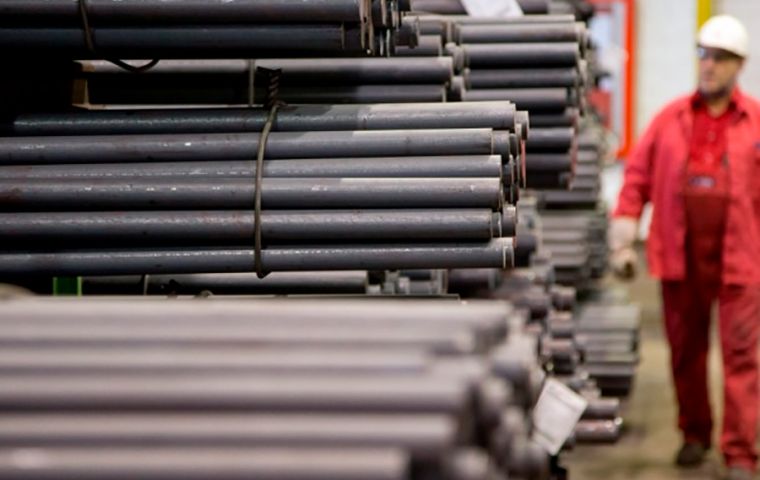MercoPress. South Atlantic News Agency
US, UK repeal tariffs on Brazilian steel products
 Of the approximately US$ 7.3 billion that Brazil exported before the COVID-19 pandemic, more than US$ 3.4 billion went to the United Kingdom and the United States.
Of the approximately US$ 7.3 billion that Brazil exported before the COVID-19 pandemic, more than US$ 3.4 billion went to the United Kingdom and the United States. Brazil's Economy Ministry Monday confirmed that the United Kingdom had decided to no longer apply protective tax measures on the import of steel plates and cold-rolled steel products.
The Brazilian authorities also said the British decision had been announced from London last Friday, just four days after the United States International Trade Commission (ITC) decided to repeal the antidumping tariffs that had been levied on cold-rolled steel products from Brazil for more than five years.
With the elimination of the safeguards, Brazilian steel becomes more commercially competitive. The United Kingdom and the United States are two of the main markets for Brazilian steel products. Of the approximately US$ 7.3 billion that Brazil exported in 2019, more than US$ 3.4 billion went to the United Kingdom and the United States.
According to the Ministry of Economy, the British authorities were convinced by the argument that the volume of Brazilian exports fell within the parameters of tax exemption authorized by agreements signed within the World Trade Organization (WTO).
About a year ago, all steel plate and cold-rolled steel products that Brazilian steel mills sold to the United Kingdom above the maximum volume periodically revised by the British authorities were subject to a 25% surcharge.
The United States, on the other hand, will no longer charge additional duties that could reach 46% (35% antidumping duty and 11% countervailing measure) on cold-rolled steel products bought from Brazil. According to the Ministry of Economy, the US decision applies exclusively to Brazilian products, while the protective measures applied to other countries have been maintained.
On the same day, it revised the conditions for the import of steel products from Brazil, the United States International Trade Commission reassessed the protective measures applied to products from China, India, Japan, South Korea, and the United Kingdom.
The ITC explained that the action was a part of the review process that according to international trade rules establish that the United States must revoke any protective or countervailing measures if it could determine after the mandatory 5-year review that upholding them would lead to the continuation or recurrence of the conditions that motivated the same measures.
(Source: Agencia Brasil)




Top Comments
Disclaimer & comment rulesCommenting for this story is now closed.
If you have a Facebook account, become a fan and comment on our Facebook Page!